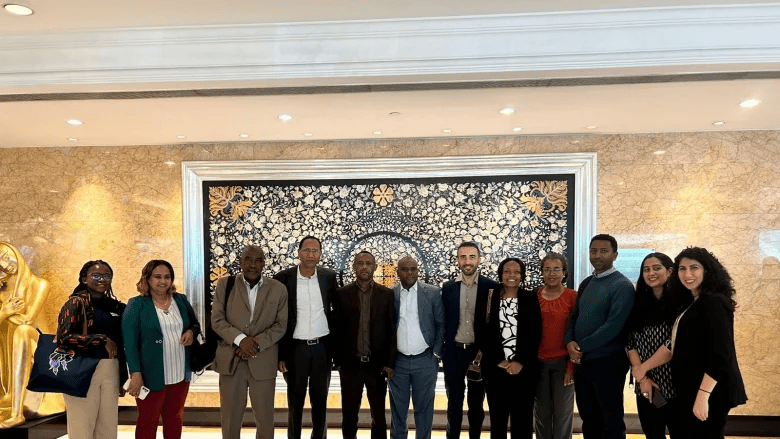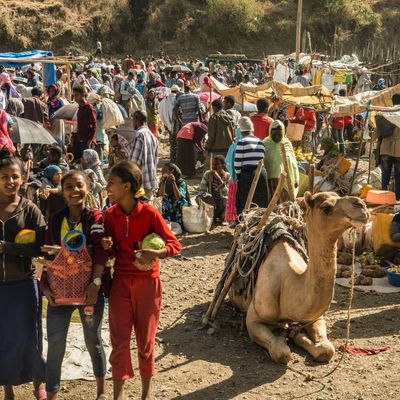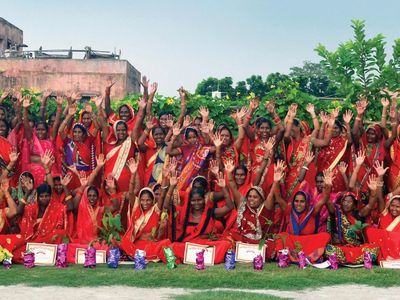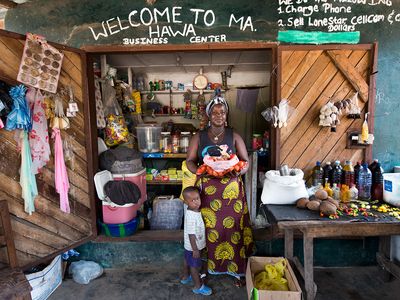BRAC began its journey in Ethiopia in 2024. Ethiopia’s population is over 129 million people, making it the second-most populated country in Africa. It’s one of the continent’s oldest nations, rich in culture and history. BRAC aims to scale its Graduation approach through the government.
While Ethiopia has a fast-growing economy, it also faces major challenges. About 39% of people live in extreme poverty, surviving on less than $3 per day. Many families struggle with food insecurity and limited access to education and healthcare. These challenges are made even harder by the impacts of conflict and climate change. In Ethiopia, BRAC is focused on working with the government to support women and families with tools and training to graduate out of extreme poverty.
Our Work

Scaling Graduation through Government
Scaling a proven pathway out of poverty in partnership with the Government of Ethiopia
Nearly 1 in 10 people live in extreme poverty. They face multiple, reinforcing barriers that keep them and their households in a poverty trap. Economic growth alone hasn’t proven sufficient to create economic opportunity to overcome these traps. Traditional longstanding social assistance and other programs have not adequately addressed the root cause. There is a need for new tools to create opportunity for those furthest behind. The Graduation approach is a proven way to help people graduate out of extreme poverty.
Graduation is a sequenced program that helps people build sustainable livelihoods in two years. Each participant gets support to meet basic needs and receives a productive asset. Assets could be livestock or inventory to start a small business. They also get coaching to build confidence, know-how, and hope.
BRAC is working in Ethiopia to support and strengthen the government’s social protection programs. One of the largest is the Productive Safety Net Program (PSNP), which began in 2005 and now helps over 8 million people in rural areas through public works, direct support, and job training.
We’re also looking closely at the Urban Productive Safety Net and Jobs Project (UPSNJP), which supports more than 1 million people in 88 cities. This program focuses on job skills, safety nets, and helping families build sustainable livelihoods.
BRAC aims to work closely with the Government of Ethiopia, especially the Ministry of Agriculture and the Ministry of Urban and Infrastructure, along with partners like the World Bank, to make these efforts even stronger and help more families move toward self-reliance.
The Graduation approach was first developed in Bangladesh in 2002. Today, over 100 organizations in nearly 50 countries use it. Through UPGI, BRAC hopes to help 21 million people escape extreme poverty by 2030—including 4.6 million families by 2026.
Ethiopia
As one of Africa's oldest countries, Ethiopia has deep history and cultural diversity. Located in the Horn of Africa, it is the continent’s second-most populated country. Its economy relies heavily on agriculture and is growing quickly.
Yet today, extreme poverty in Ethiopia still affects about 47 million people. Many have limited access to food, education, healthcare, and employment opportunities. Climate change is only making this harder, with droughts and floods affecting crops and water supplies. But with the right tools and support, families in Ethiopia can rise above poverty.
We need to work together more effectively to leverage what already exists to achieve greater and more sustainable impact so millions more people can create lasting trajectories out of poverty.”
Aude de Montesquiou, Senior Advisor for BRAC Institute of Governance and Development
Meet the Leadership Team

Power people to rise above poverty
Make a gift to unmake poverty and power potential.
Donation options
Your most generous donation
Your most generous donation



